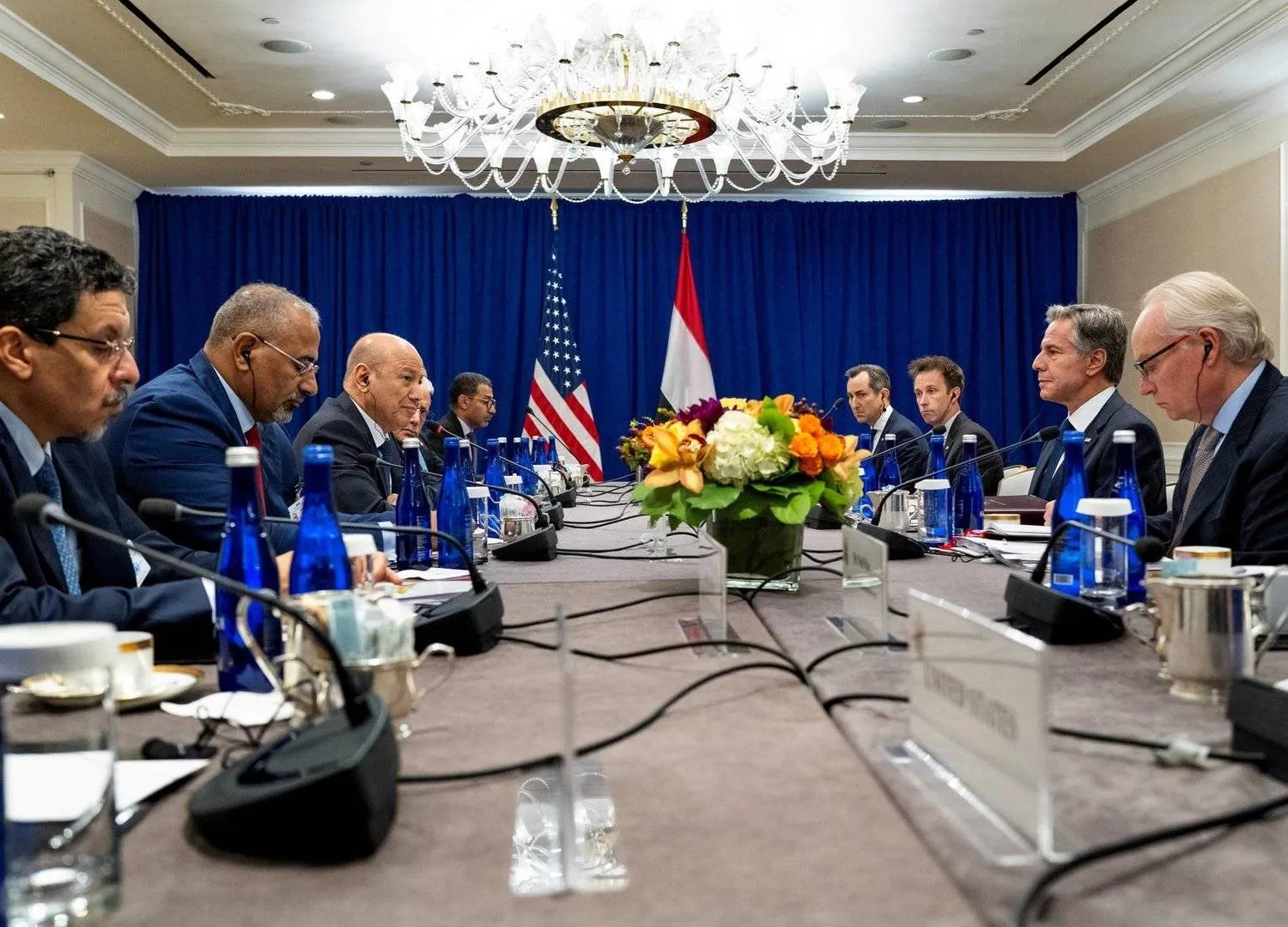Yemeni Presidential Leadership Council (PLC) President Rashad al-Alimi accused the Houthi group of obliterating decades of developments in the country since their coup.
Speaking at the Sustainable Development Goals Summit on the sidelines of the 78th UN General Assembly meetings in New York, Alimi urged the international community to push the Houthis toward peace.
The Yemeni official called for intensified pressure on the Houthis to end the politicization of humanitarian issues, asserting that this is as important as humanitarian aid.
He explained that Yemen is lagging in its development commitments due to the strains of war and a deepening humanitarian crisis that the Iran-backed Houthi militias continue exacerbating for the ninth consecutive year.
Alimi added that the war has shifted developmental priorities in Yemen, especially in light of the cessation of oil exports for an entire year following Houthi attacks on export ports and international shipping lanes.
Discussing sustainable development objectives, which involve widespread societal participation in decision-making, production, and employing technology for job creation and improving life quality, the Yemeni leader stressed that such discussions are now impossible in densely populated militia-controlled areas.
He blamed the Houthi group for barring life-saving vaccines from reaching their territories, leading to a resurgence of deadly diseases eradicated two decades ago.
- Destruction of achievements
Alimi discussed the impacts of the Houthi war and its dire consequences across various service, developmental, and humanitarian sectors.
Recently, he said millions of Yemeni students returned to school under extremely harsh conditions, adding that the governmental protection network that should be bolstering the education sector has collapsed.
He emphasized that the Houthis' actions have destroyed Yemen's economic achievements over the past decades.
- Diplomatic Initiatives
He held a series of meetings with UN and international officials in New York to shed light on the crisis in Yemen and pressure the Houthi rebels to embrace peace, according to official sources.
Alimi and PLC Vice President Aidrous al-Zubaidi met with the US Secretary of State, Anthony Blinken.
They discussed the evolving situation in Yemen and the commendable mediation efforts led by Saudi Arabia and Oman to renew the truce and initiate a comprehensive political process under the UN's auspices.
Alimi acknowledged the US humanitarian interventions to alleviate the hardships intensified by Houthi attacks on oil installations and international shipping routes.
Additionally, he met with the UN Under-Secretary-General, Vladimir Voronkov, and discussed the wide-ranging implications of the Houthi war.
State-owned Saba news agency reported that Alimi briefed the UN official on the escalating threats fuelled by the Houthi militias.
He highlighted the need for international support to rebuild the state institutions, law enforcement agencies, counterterrorism, and organized crime authorities and enhance their capability to counter security threats in coordination with regional allies and international partners.
Furthermore, Alimi met with the International Monetary Fund's (IMF) Managing Director, Kristalina Georgieva, addressing the economic and humanitarian situation in Yemen.
Yemen's official media reported that Alimi discussed with international officials the humanitarian consequences of the Houthi attacks on oil facilities and discussed the required international support for the Yemeni government to fulfill its obligations.
The head of Yemen's governing council expressed appreciation for the facilities provided by the IMF, notably its Special Drawing Rights (SDR).
He indicated his openness to various offers to mobilize global support alongside government reforms and measures in coordination with regional and international allies.
Alimi lauded the generous Saudi support for Yemen's state budget and its pivotal role in stabilizing Yemen's economic and service sectors.









